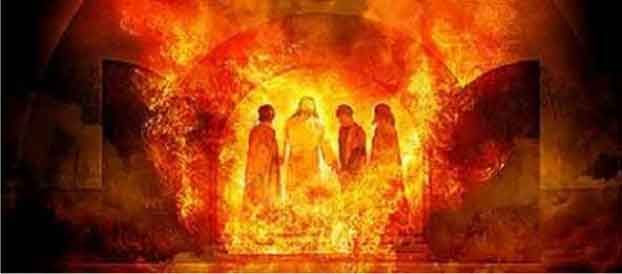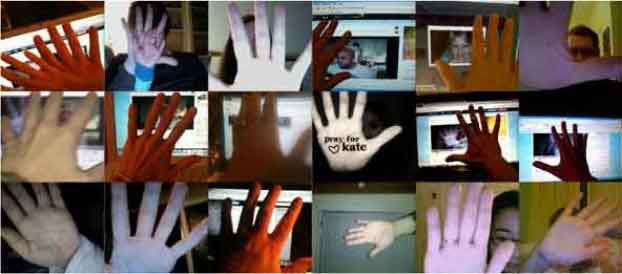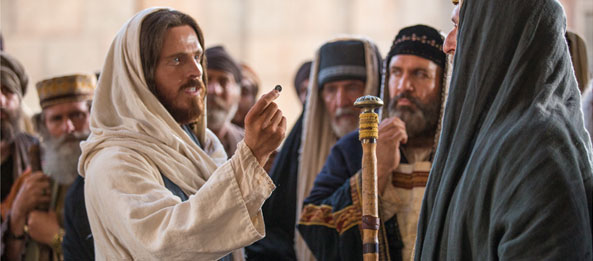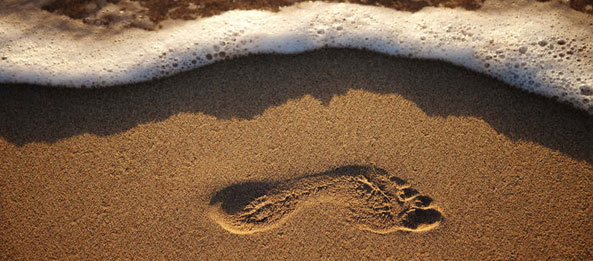Baptism in fire
Daniel 3: 13-30
Jesus baptizes with the Holy Spirit and fire (Luke 3.16). We may well ask what it means to be baptized with fire. Perhaps the account of Shadrach, Meshach and Abednego in the Scripture above gives us a good example. They were thrown into a fire that separated them from all the idol worshippers and they emerged from it as men who could be trusted and empowered. The fire that Jesus baptizes with is not natural fire but it does produce similar results. But what exactly is this fire? In the phrase ‘Holy Spirit and fire’ it is most likely that the word ‘fire’ simply emphasizes the nature of the Holy Spirit. The Holy Spirit is like fire. When the Holy Spirit was poured out on the Day of Pentecost people “saw what seemed to be tongues of fire that separated and came to rest on each of them” (Ac 2.3). Fire describes two aspects of the Holy Spirit: his ability to purge and his ability to empower.
Today I want to emphasize how God’s Spirit purges us. In the Daniel account Shadrach, Meshach and Abednego refused to compromise and remained unharmed while the idol worshippers that threw them into the fire burned up. God’s holy presence is like that, it is heaven to the righteous and hell to the unrighteous. In short; it makes the good glow and the bad burn.
The presence of God like natural fire is both needed and feared. Fear is a healthy reaction in both cases for fire can empower and destroy. Think of an aircraft; its fuel must burn for it to have power, but if that fuel is abused the entire aircraft can incinerate. Likewise the Holy Spirit that empowers us also convicts and purges us. God’s fire separates what does not burn from what does burn; our righteous acts from our sinful acts, the gold, silver, and costly stones from the wood, hay and straw (1 Co 3.12-15).
As I mention ‘wood, hay and straw’ I should also mention that there were thousands of Jews living in Babylon under King Nebuchadnezzar and many must have bowed to his idol. The report said that ‘some Jews’ refused to bow (12). This means that there were ‘other Jews’ that did not refuse to bow. Isn’t it true that like these compromising Jews we often want a bit of both worlds; we want God but also our idols. Many believers creep into church week after week to sing and get teaching, but avoid taking Holy Communion and avoid the power of the Holy Spirit at the front because they sense that God’s Presence requires they let go of their idols. They want to continue in an immoral relationship or in doing corrupt business deals or in being bitter to some person. Like Nebuchadnezzar’s idol our idols tempt us into living a double life.
I wonder what the compromising Jews felt when they heard of the commitment of Shadrach, Meshach and Abednego. I am sure they were cut to the heart; to think they gave in so easily when these guys would rather be burnt alive. But does it do the same for you and me? Let’s face it, their story is our calling. We are called to be different and to stake our lives on being different.
I wonder what Shadrach, Meshach and Abednego felt as they were drawn near to the flames? Do you think they thought “Oh why me?” I don’t think so; clearly they were prepared for whatever came their way. They said to King Nebuchadnezzar, “If we are thrown into the blazing furnace, the God we serve is able to deliver us from it, and he will deliver usfrom Your Majesty’s hand. But even if he does not, we want you to know, Your Majesty, that we will not serve your gods or worship the image of gold you have set up” (17-18). Like them we should not be surprised when trials come our way; trials test our resolve. Jesus did not promise this life would be easy, but like the fourth person appearing in the fire with Shadrach, Meshach and Abednego (25), he did promise to be with us always (Mt 28.20).
Notice too that Shadrach, Meshach and Abednego’s statement declared their faith in God, not their faith in the final result. We cannot have faith for something that God has not promised and God did not promise to save them. Real faith trusts the Person regardless of the result.
I have dwelt on the purging aspect of baptism in fire on purpose; we hear so much about the empowering side in Charismatic circles. But let me finish by at least showing there is a further development in the Shadrach, Meshach and Abednego story; and that is this: We see how fire establishes us. Having passed through the fire these three heroes are recognized as men who are worthy of power, and King Nebuchadnezzar promotes them to a higher place in his kingdom. The truth is this: we trust those who have been through fire, and so does King Jesus. There is more power for those who prove faithful. The baptism in fire purges and empowers.







